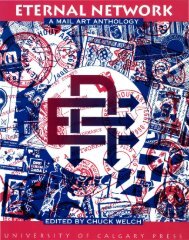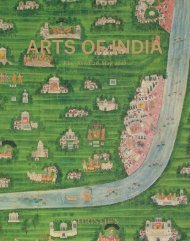1JZGauQ
1JZGauQ
1JZGauQ
You also want an ePaper? Increase the reach of your titles
YUMPU automatically turns print PDFs into web optimized ePapers that Google loves.
5: CASE STUDY 2: THE CZECH/AUSTRIAN BORDER<br />
his wife shows us some pictures from the family album of their first years<br />
in the house. “About half of the vehicles used by the army were Russian<br />
whilst half were Czech”, he explains. “Our car was Russian” he continues<br />
and points to a picture with the family gathered around a car. I cannot tell<br />
much about the car as it is mostly hidden behind people posing on and<br />
around it, children as well as adults, but it is clear from the people that<br />
this was not a car to be ashamed of.<br />
“It was important for me as an officer to keep on a good footing with the<br />
soldiers. Everything worked much more efficient if there was a friendly<br />
atmosphere”. He thinks back and starts laughing a bit to himself “Have you<br />
seen all the pools around here” I nod as I have seen the many natural pools<br />
in the area and he carries on “sometimes when they were out on their<br />
patrols they stopped to have a swim. They thought we didn’t notice”. It all<br />
sounds more like a holiday camp then the army. Almost as if he can read<br />
my thoughts he flicks in “Of course it was all serious business but I think<br />
compared to other jobs in the army, a border guard had a fairly easy time”.<br />
He emphasises the fun that was had by the boys and maybe these are the<br />
memories he has taken with him.<br />
He explains how the place looked very different then when 50 soldiers<br />
were staying at the Šafov station as well as several guard dogs. Many of the<br />
soldiers were scared of the dogs but of course they were trained to attack.<br />
There were even pigs kept in the yard which were used for food. “Now the<br />
place is falling apart”. There is no nostalgia or regret within this sentence<br />
but merely a statement.<br />
I try to put a few more questions forward but he seems to have lost<br />
interest. Instead he shows me some photos of the time all taken at the<br />
training facilities in Jemnice. “We were not allowed to take any pictures at<br />
the actual border or at the stations. No cameras were allowed.” I am allowed<br />
to photograph some of his pictures however, and he explains them as I go<br />
along. There are pictures of him posing with a small group of soldiers, then<br />
one picture with a larger group of soldiers posing in front of a barbed wire<br />
fence. Some of the soldiers are holding long poles with double hooks at the<br />
end, he explains: “For clearing the fences”. I ask about a picture of a boy in<br />
uniform posing with a dog and the wife answers that this was one of the<br />
soldiers that were originally from Slovakia. They do not know anything else<br />
about him. There are also pictures of the officer and the soldiers being<br />
instructed in how to dismantle the fences (Figure 97). “The beginning of the<br />
end” he says and laughs. This is also the end to our interview and l<br />
understand that although he does not so much mind sharing information<br />
171




